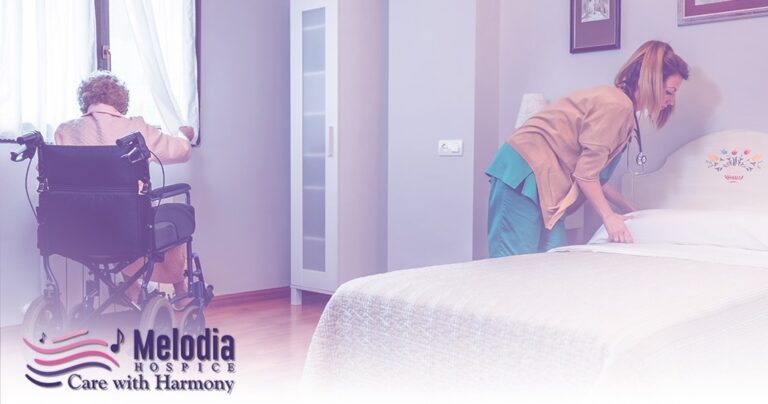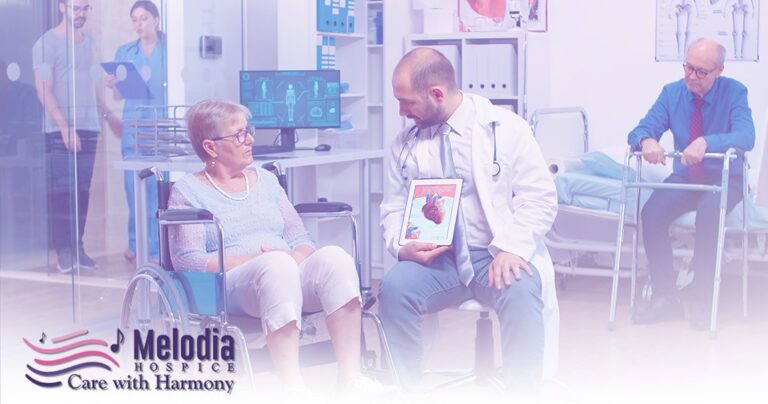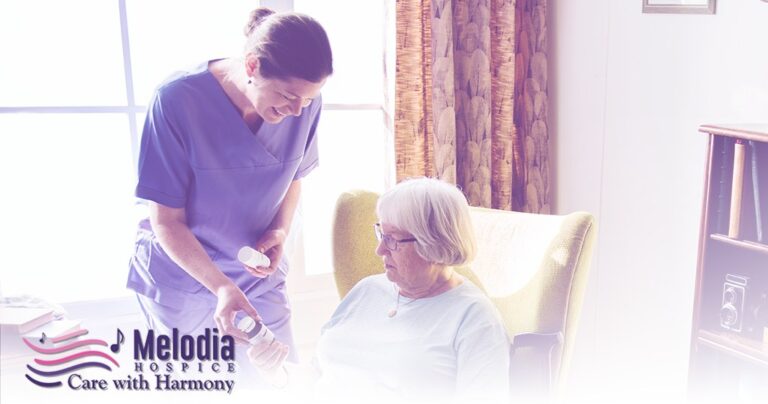Hospice Care At Home In Orinda City, California
If you or a loved one is terminally ill, hospice care gives you the option to live in the company of family, friends, pets and familiar items. Many others, on the other hand, have never received hospice care in their own homes. Those who have benefited from hospice and overcame their fear of the unknown often regret not opting for hospice care sooner.
What Does It Mean To Have A Hospice Come To Your House?

Home hospice care is offered to patients whose doctors estimate their remaining life expectancy to be no more than six months, even if their condition is allowed to progress unabated. Hospice care can be provided in a variety of settings, including your own home, a relative’s house or an assisted living or nursing home facility where you or a loved one currently stays. If your pain or symptoms can’t be managed at home, the hospice professionals may prescribe a short-term stay at an inpatient hospice clinic.
If you or a loved one is facing a life-threatening illness, selecting at-home hospice care can bring comfort, support and dignity.
For those who are terminally ill, hospice offers a team-based approach to medical care and pain management as well as emotional and spiritual support that is tailored to meet your unique needs and wishes. Each patient also receives specialized medical equipment, supplies and medications to help ensure their comfort and well-being throughout their stay.
If you or a loved one has a terminal illness, you or your doctor may decide that therapies meant to cure or stop the disease are no longer effective or that you are ready to stop them. Your doctor can refer you for hospice care, which is also known as end-of-life care.
There is nothing more important to you than being able to focus on the people and things that are important to you. This is where hospice, also known as palliative care or end-of-life care, may be of use to you.
It’s a myth among some people that using a hospice indicates you’re given up on life. Some people may be worried that they may not get the medical care they need. However, the program does not focus on curing a disease; instead, it aims to improve the overall quality of your life.
It is possible that the team will include a doctor, nurse, social worker, therapist and chaplain (if applicable). They work together to meet your physical, emotional and spiritual requirements.
Family members can also receive hospice care. As well as helping with ordinary chores like cleaning and grocery shopping, it also provides therapy.
When Can Hospice Care Be Started?

It’s possible to sign up for hospice care if your doctor determines that your illness is terminal and death will occur within the next six months. Continuing in hospice may be an option if your doctor and the hospice staff feel that your time left is limited.
Instead of continuing dialysis if your kidneys are failing, you may wish to look into a hospice program. You can, of course, change your mind, stop receiving hospice care and then resume counselling. Even if some people do better than expected, there is always the possibility to return later.
On the other hand, palliative care is for everyone who is extremely ill, not just the terminally ill.
Is It Safe to Remain At Home?

Two stages of hospice care are provided at the patient’s home. There are four levels:
- Routine Home Care is level of hospice care, which is the most common, includes nursing and home health aide services.
- When a patient requires round-the-the-clock nursing care due to a medical emergency, they will require continuous home care.
- General Inpatient Care is short-term treatment is used to alleviate pain and discomfort that cannot be managed outside of a hospital setting.
- When the patient’s caregiver needs a break from caring for him or her, respite care is used to describe a short-term stay in a facility.
Friends and relatives can come and go as they want if you or a loved one chooses to stay somewhere like that. In fact, this is the choice made by the vast majority of people. Most of the time, the primary caregiver is a family member or friend.
It’s possible that long-term care facilities and hospice centers can help as well.
Consider the following questions while deciding whether or not to stay at home:
- How unwell and how do they feel, the person who requires help?
- A hospital or nursing home setting isn’t the only place where pain can be treated.
- Is the primary caregiver emotionally and physically capable of taking care of the patient at home?
- If you are a caretaker and also working at a job, can you afford to reduce your working hours or leave your job?
- How quickly can you receive a bedside commode or wheelchair in the event that one is required?
The decision is entirely up to you, and every situation is different. The way you answer these types of questions, on the other hand, will help you determine where you want to go.
Hospice organizations typically bring in medical equipment like a hospital bed, oxygen machine and wheelchairs as needed. At home, the prescriptions for analgesics and tranquillizers arrive. Hands-on assistance, on the other hand, is rare. According to Medicare, hospice coverage may cover services such as home health aides and homemaker assistance. When it comes to actual baths, in-person help is usually only needed once or twice a week. Each day, the nurse or assistant spends around 30 minutes with patients at home, according to Medicare data.
The Benefits Of Receiving Hospice Care In The Comfort Of Your Own Home

Families can engage in the activities listed below:
Retain A Familiarity With Your Surroundings By Using In-Home Hospice Services

You can sit on your own couch and use your own bathroom. When you have a serious illness or are taking care of someone who does, the conveniences of home are priceless.
Send Quality Time With Loved Ones

Take use of this time to create new memories and express sentiments, emotions and words that need to be expressed with those you care about. You’ll have more time for conversation, memory-making projects and other activities that strengthen your family relationships while you’re together at home.
Trained Specialists Will Give Expert Care

You and your family determine what kind of care you need from hospice, and we provide it. You or a loved one’s quality of life is our primary concern. The key to providing this kind of support is to put together a diverse group of experts who can address all of your concerns. Medical professionals such as doctors, nurses and social workers as well as healthcare assistants, respite and companionship volunteers, round out the group’s membership. Providing comfortable end-of-life care has been taught to the team’s members.
Visits On A Regular Basis Are Necessary

Members of the hospice team may come to see you and your family on a regular basis depending on your requirements and those of the patient and their family. Instead of making unplanned excursions to the hospital’s emergency room or re-admissions, you and your family can create a routine and care plan that is less physically and emotionally stressful.
There Will Be Explanations From Experts

Experts in the field of palliative care make up your in-home hospice team. With each visit or phone call, you’ll get answers to all of your questions, including ones you never thought to ask. Assist in explaining family dynamics to children in an age-appropriate manner; help with delicate family relationships; and offer direction on planning funeral arrangements and meaningful memorial ceremonies, to mention a few things they can do for you.
Hospice Views A Natural Death As An Inevitable Part Of Life's Cycle And Treats It As Such

If you or a loved one is facing a terminal illness, hospice care can help them face their final days with dignity. You won’t be at the hospital’s intensive care unit or emergency room for days at a time. Invasive procedures and harsh therapies that may or may not help you live longer will not be performed on you on a regular basis and you will not be probed and prodded by medical staff. To the greatest extent feasible, you’ll be kept clean, comfortable and pain-free during your stay with us.
Make Use Of Government Program Like Medicaid And Medicare, As Well As Your Own Insurance

Medical bills at the end of life can be a financial burden for many families. Hospice care, on the other hand, may cover all or a significant portion of your out-of-pocket costs. Hospice care is covered by Medicare, Medicaid and the majority of private insurance policies. It’s a good idea to ask your insurance company about hospice coverage before you or your loved ones are faced with an emergency. Many hospices, on the other hand, will not turn away a medically eligible patient for lack of funds or insurance coverage.
It is possible for your hospice to send you a hospital bed, oxygen, medical supplies or medications associated with the condition you’re in directly to your door without charging you a penny. As a result, you spend less time and energy searching for dependable sources, placing orders or making additional trips to obtain these necessities.
Take Use Of An At-Home Care Provider's Services

Many exhausted family caregivers find comfort in in-home hospice care, which includes visits from skilled home health aides. Personal care such as washing, grooming and light meal preparation are all provided by the Melodia Care Hospice for the patient. Family members can learn how to take care of their loved ones by using the Melodia Care support program in the privacy of your own home, this kind of respectful personal care is greatly appreciated.
Request Volunteer Visits By Using The Following Form

A hospice team member who has undergone training is available for companionship, talking, reading, playing cards and sharing tales. By bringing delight to the sick and relieving stress on family caregivers, this kind visitor can benefit both parties.
Focus On Your Particular Needs And Preferences
Hospice caters its services to meet your specific requirements, including companionship, spiritual support and assistance in realizing personal goals. With hospice, you and your family may focus on the things that matter most to you every day.
Family Members Can Help You Cope With A Loved One's Illness Both During And After It Has Ended
Hospice offers counselling from social workers and chaplains to help families get through this difficult time. Even after a loved one has passed away, we’re still here to help. Ask your chosen hospice about its bereavement services. Others give individual grief counselling, grief-specific support groups and other helpful tools to families in the wake of the death of a loved one.
Because it can be difficult to tell the difference between palliative care and hospice care at home, we encourage you to contact us if you need help deciding which option is best for your loved one.
To help those who are suffering of a life-threatening illness and to support their carers and family members, hospice care at home has a dual purpose. If you’re interested in learning more about Hospice Care, Melodia Care Hospice is to contact.
You can reach us at any time of day or night by contacting us through our 24/7 online customer support chat or by calling 1-888 635-6347 (MELODI-7).
